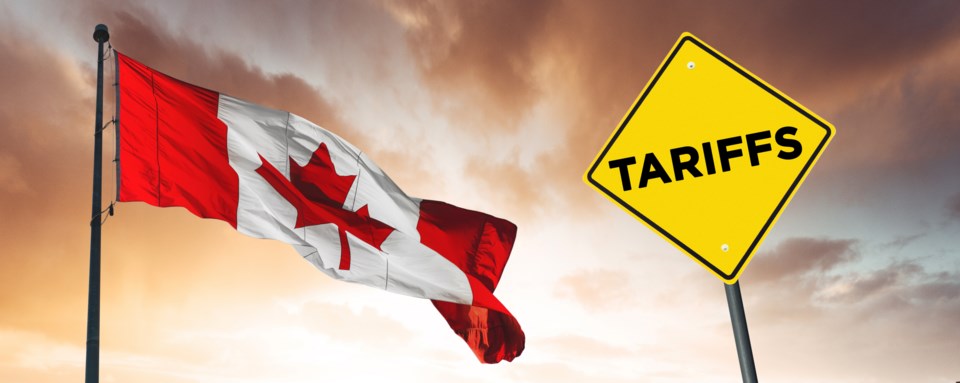THUNDER BAY — The city is keeping a close eye on developments in the trade war launched by U.S. President Donald Trump, and doing what it can to prepare for potential impacts on municipal construction projects.
"Due to the ever-changing tariff threats, changing implementation dates, changing lists of products to be included or omitted, along with changing tariff percentages to be charged, the city – as with all Canadians – is left in a position of heightened risk of the unknown," said Allan Hensel, manager of supply management for the city.
City officials recently were pleased to learn tariffs will not impact what was budgeted for the demolition of Victoriaville Mall and the revitalization of Victoria Avenue, but they remain wary of how other projects might be affected.
One of the steps they're taking is to mitigate the city's risk by incorporating new language into contracts, including the yet-to-be awarded contract for the construction of an indoor turf facility.
Three companies were shortlisted for that project several months ago, but the tender closing date was extended several times, partly due to the need to address the tariff issue.
Hensel said the indoor turf facility is a complex design-build project requiring further negotiations with the highest-scoring proponent, and that working through the negotiations takes time.
He was unable to predict when administration's report on the results of its evaluation will be submitted to city council, but city officials previously targeted this spring for the awarding of a contract.
Speaking in general terms, Hensel said "With the US putting steel and aluminum tariffs in place, we're starting to see that filter through any metal siding, any steel for construction projects. We're going to see that filter through to most industries, really, vehicles, playground equipment, you name it. Those things are just starting to pop up now, so nobody has a good handle on it, but we may need to put in strategies to mitigate those increases."
He explained that many Canadian and American industries are integrated, so raw materials and products frequently move back and forth between the two countries.
"They're being processed, then being moved back across the border. So if the prices go up in the U.S., we will end up seeing increased costs here as well."
As part of its response to the tariff issue, city administration set out to review the language of newly-issued and soon-to-be-issued tenders.
Hensel noted the rising cost concerns facing the city are no different from those facing the contractors aiming to bid on city construction projects.
"We've had discussions with the Thunder Bay Construction Association and heard their concerns, as they represent the contractors," he said. "If there are unpredictable threats out there, how do they put a price on it? Those risks could significantly increase their bid price, yet some of those tariffs may never be implemented. Therefore, we may be subject to costs that have not actually been realized."
Hensel said changes need to be made to tender documents to address this concern.
"In general, the city seeks to have a process whereby contractors communicate new tariffs, mitigate the risk of cost increases through alternatives, and substantiate any reasonable direct costs to be incurred when mitigation attempts are unsuccessful."
At the same time, he said, the city recognizes that asking contractors to provide a fixed sum that includes any potential future tariff costs could result in fewer bids or even no bids being submitted.
"Contractors collecting their prices from sub-contractors, as they prepare their bid, could literally experience a change in cost merely one day after collecting their prices, should any new tariff begin, or should any tariff be cancelled. The city has taken this fact into consideration... as it continues to add language to accommodate new tariffs."
City officials, Hensel said, continue to monitor the situation daily.
Although tariffs remain in a state of flux, he said that at some point they could cause the city to change its plans "and look at prioritizing projects, possibly by deferring or putting projects on hold, subject to council approval."
